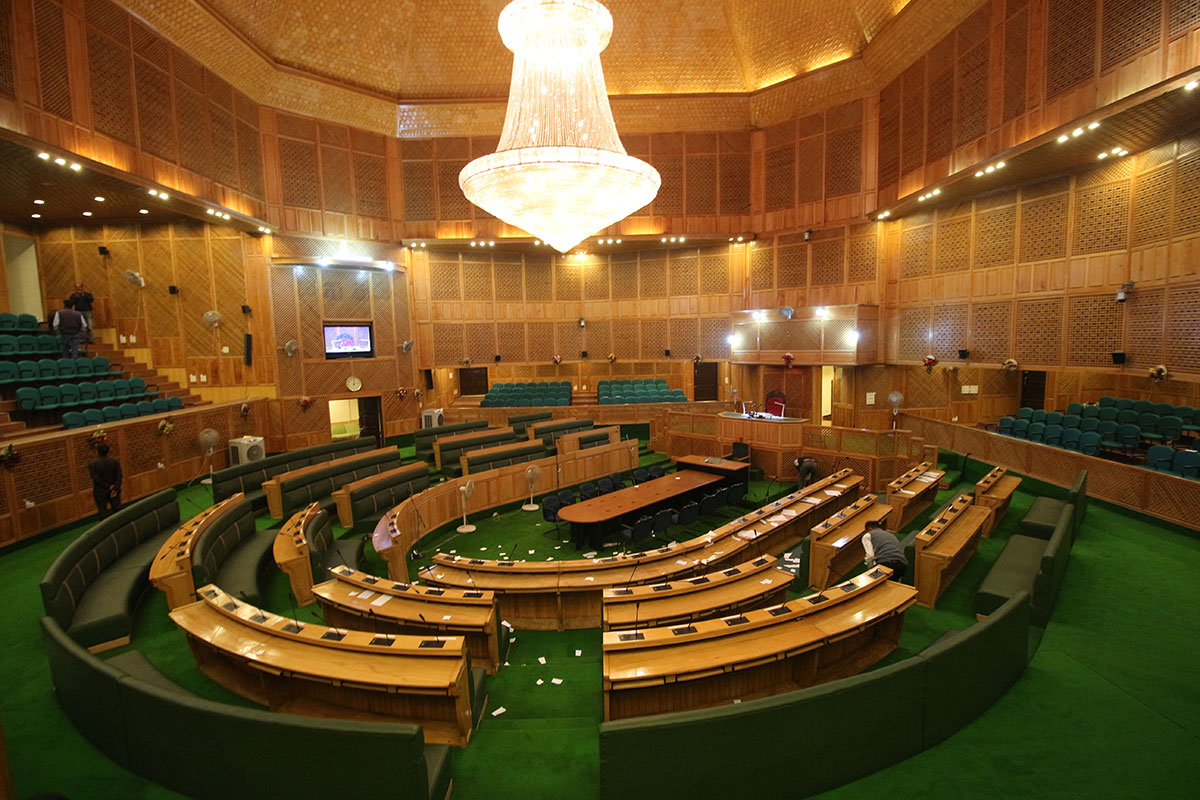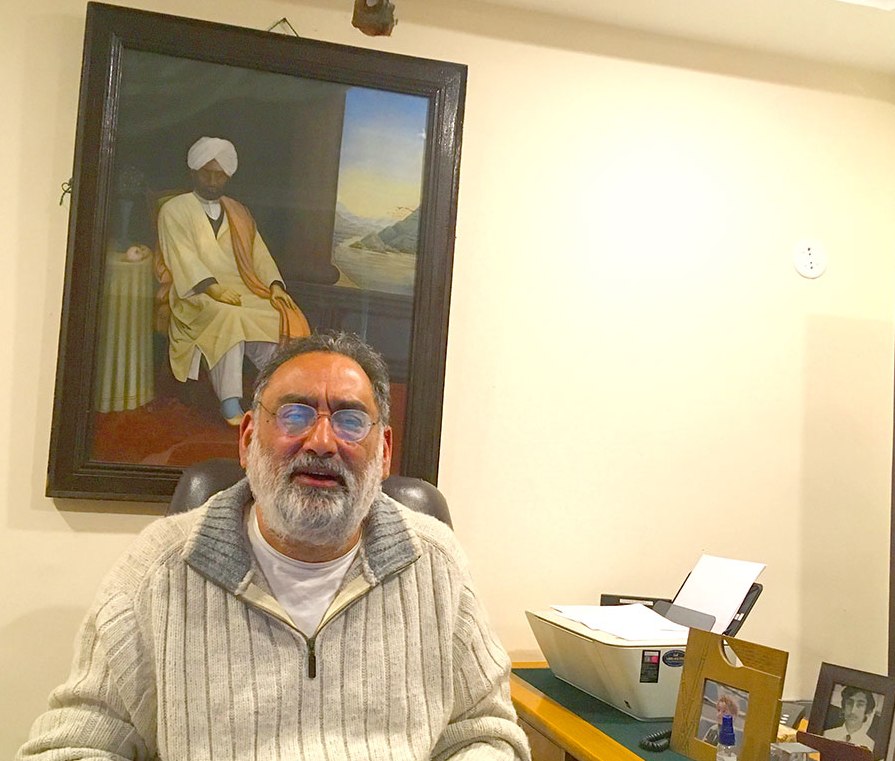by Haseeb A Drabu
A redefining of the domicile law has been on the cards post rescinding of Article 35A in August last year. Having demolished the edifice, the scaffoldings had to be removed.

It had been in speculation that the earlier constitutionally guaranteed domicile rights would be replaced substantively albeit as a legal right. Not that constitutional guarantees mean much anymore, but that was the expectation.
On the 31st of March, 2020, as a part of the exercise to align the state laws of the erstwhile state of J&K with its new stature as a Union Territory, Government of India amended 109 and repealed 29 state laws. Apart from generically replacing “Permanent Residents of J&K” with “Domicile of Union Territory of J&K”, one of the acts changed made to the rules of Domicile for purposes of appointment to any service in Union Territory of Jammu and Kashmir. This has far-reaching implications.
The changed legal and administrative regime for defining domicile and the associated rights in J&K has to be understood in terms of the meaning of undoing, the method of doing and the manner of redoing of the domicile provisions. Equally important to understand is the reactions from the state to the changes that were enacted.
Beyond Dilution
The changes made go beyond diluting the rules of domicile in J&K to allow “outsiders” in. The fundamental change that has been made is undoing the principle of “domicile of origin” that the earlier law was based on and replace it with a “domicile of choice”. Adding “safeguards” in terms of the number of years in residency as qualifiers are subsidiary. More on that later.
Legally, the domicile of origin which one acquires at the time of birth, is the “creature of law”. It confers a right that can never be “entirely obliterated and extinguished”. What this means is that even when another domicile is put on, and the domicile of origin is for that purpose relinquished, it remains in abeyance during the continuance of the domicile.
It thus recognises and reflects social factors and relationships. It contains within it the conception of domicile that relied on ethnic origin as a marker of belonging. It also provides personal law for resolving the legal issues of a person.
Most significantly, the tenacity of this law is evident from the fact that it revives and exists whenever there is no other domicile, and it does not require to be regained or reconstituted animo et facto in the manner which is necessary for the acquisition of a new domicile. Such a powerful law has been replaced by an anaemic legal regime. The “domicile of choice”, the product of preference and practice. It is fundamentally a self-acquired domicile and hence very benign.
Domicile of Choice
In fact, domicile of choice is a conclusion or inference which the law derives from the fact of a person fixing “voluntarily” his residence in a particular place with the “unlimited intention” of continuing to reside there. It is at best a description of the circumstances which create a domicile, and not a definition of the term.
With a view to give it some teeth, qualifying condition in terms of the number of years – 15 years – has been added as a protection. Even here, a subset of 10 years has been added for those residing in J&K on work of the organs of the state; central government and its subsidiaries. This rule is in complete contradiction of the basic principle of the domicile by choice; freedom of choice. It also goes against international norms and practices.
It is an internationally accepted tenet, upheld in numerous court verdicts, that “residence for domicile rights” must be freely chosen and not prescribed or dictated by any external necessity such as the duties of office”. Further, it cannot be fixed for any defined period or particular purpose, but has to be general and indefinite in its future duration. In other words, for the domicile rights to be legally valid, the intention to settle down in a place must be free and voluntary.
Indeed, section 12 of the Indian Succession Act 1925 lays down the principle. And the Explanation to Section 10 of the same Act amplifies that a person cannot be deemed to have taken up residency “merely by reason of his residing there in Majesty’s civil, military, naval or air force service in the exercise of any profession or calling.” These cases cast doubt on the freedom of intention as they are involuntary.
The inference is that as soon as the purpose of stay or generally animus manendi changes, the fact of domicile of choice gets extinguished by law.
As such, Section 3A, sub-section 1, clause (a) and Section 3A, sub-section 2, clause (a) of The Jammu and Kashmir Civil Services (Decentralisation and Recruitment) Act (Act No.XVI of 2010) fly in the face of the established tenets of the domicile of choice.
Incentivised Domicile
Perhaps it has been realised that given the situation in J&K for three decades now, it won’t be a domicile of choice for anybody in the foreseeable future. Hence the choice is being incentivised and guided, if not ordered. The choice will be made by the government and only complied by the individual.
The special dispensation for children of those who are serving in J&K, makes matters more complicated as the domicile of choice has been merged with the domicile of dependence! The result is a domicile law that is a non sequitur.
The real issue is that the new regime of domicile rights in J&K strikes at the roots of the notion of who belongs to Kashmir. The rules obliterate, through redefining, the ethnic conceptions of belonging that was sought to be protected by the domicile law in the first place.
Article 35A
Indeed, what Article 35 A had done was to reconcile and make the J&K domicile an attribute of Indian nationality. It denoted his/her place of residence as a citizen of India. For, the people of J&K, domicile was the de facto citizenship from 15th August 1947 to May 14, 1954.
It may be recalled that even after J&K acceded to India, the people of the state did not automatically become Indian citizens. This happened with the Constitution (Application to J&K) Order, 1954 which stipulated that the people of J&K are citizens of India with retrospective effect from 1950. In fact, it was not until the Citizenship Act of 1955 that the state- subjects were formally made citizens of India.
Private Negotiations
Finally, an important aspect is how the domicile notification was amended within two days of it being notified. With constitutionalism being replaced by ad hoc and arbitrary rules, the consequence is that these are open to informal private negotiations. Or maybe the other way round!

More than anything else, this speaks volumes about how the formal legal and legislative matters like residency and, by implication, citizenship are being made or unmade based on informal private negotiations. This is an ominous boding not only for Kashmir but for the entire country.
Tail Piece
Equally distressing, if not more, is the reaction to the new domicile regime, which has been about the timing and state government jobs.
It was in 1865 that “mulki rights” were first raised as an issue in J&K. This was followed by a representation to M H Sharp in 1916, a memorandum to Lord Reading in 1924 and charter of demand to B J Glancy in 1932. All these had one thing in common: representation in the state government employment. Exactly 155 years later, the same issue is being raised and negotiated with the Government of India. In any case, with 4.5 lakh people already in government service (Bihar with nearly 10 times the population, has only 4 lakh employees), one out of every seven in the working population is a government servant. Add the pensioners, and every third person will be on the payrolls of the government!

So, what are the numbers that are being held out as carrots? At an average rate of retirement of 3 per cent, and much higher rate of growth of youth entering the job market, someone would do well to estimate the job market dynamics!
As such, to see the domicile law from the perspective of reservation for government jobs is the tail wagging the dog! And therein hangs the real tale.
(Author is an economist and former Finance Minister of Jammu and Kashmir. The write-up appeared first in Greater Kashmir.)















